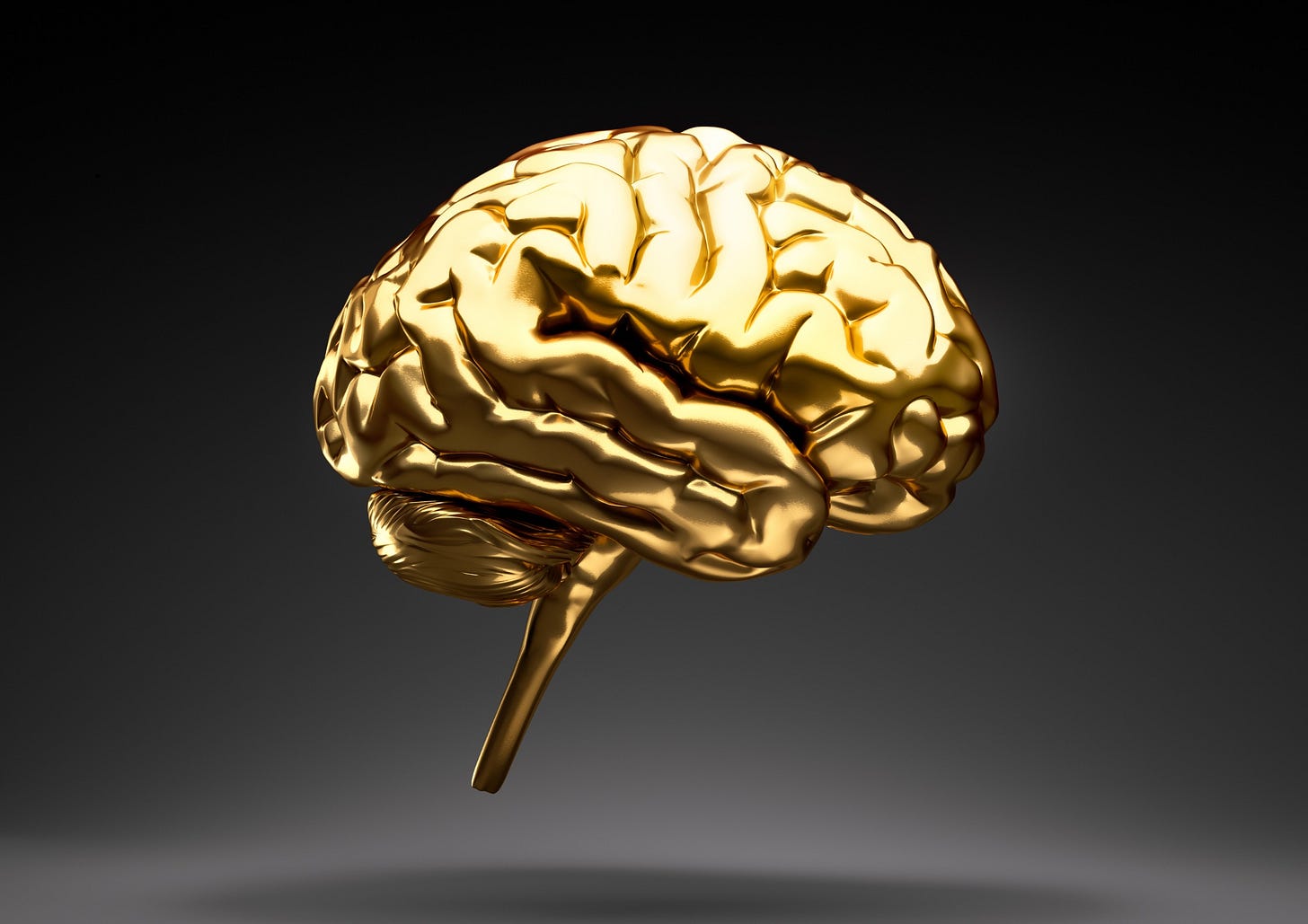Step one in your AI strategy: train your brain
(you'll be sorry if you skip this one)
“If the human brain were so simple that we could understand it, we would be so simple that we couldn’t.” Emerson M. Pugh
Let’s get something straight: the first step in your AI strategy is not technical. It’s neurological.
This AI revolution is coming for your brain. And it’s just getting started.
If your brain feels foggier than usual, if your attention span is shredded, if your sense of future is shot through with anxiety - you’re not imagining it. AI is part of the problem.
So it seems pretty clear to me that before you master ChatGPT prompts or launch your custom GPT, the first step should be to pause and ask: What kind of brain am I bringing to the AI era?
AI is an onslaught
This isn’t a normal tech transition. AI comes with a uniquely disorienting set of cognitive side effects:
Information overload that fragments attention and creates an urgency to learn that can never be sated.
New ways of learning that bypass traditional memory or critical thinking.
Ubiquitous screens that keep us tethered and overstimulated.
Micro and macro anxiety about the future of our jobs and the world.
In short: AI destabilises our default operating systems. The human brain didn’t evolve for this - and it shows.
Protecting your brain is a strategic move
Still treating meditation or screen breaks as luxury add-ons? In the AI future, cognitive resilience is strategy.
If you can’t focus, you can’t lead. If you can’t manage your mind, you can’t manage your tools. If your nervous system is constantly hijacked, you’re not innovating - you’re reacting.
And if AI levels the skills playing field (which it will), your brain is your last real differentiator.
Start by building your neurotech stack
Want to futureproof your mind? Start investing in practices that expand your capacity - not your dependency.
What works for me might not work for you, but to spark your thinking, here’s my current neurotech stack:
Meditation: not to escape but to remember. That I’m human. That my brain is incredible. That it cannot, and will not, be replicated by machines.
Nature: time away from screens is not optional. It is repair.
Nutrition: food that fuels cognition, not just convenience.
Movement: because a sedentary brain is a sluggish brain.
Screen boundaries: because doomscrolling is not research.
Sleep: not as recovery, but as mental integration.
(Yes, I’m also in the process of becoming a certified brain coach)
Recognises that AI will amplify your dysfunction
This is the kicker. If you are distracted, anxious, reactive or overwhelmed, AI will not help. It will multiply the problem.
A fragmented mind fed by algorithmic tools becomes a chaotic operator. You’re not “using” AI - you’re being driven by it.
But a calm, focused, spacious mind? That’s where AI becomes exponential.
Your humanness is your superpower
As AI floods every domain with near-perfect outputs, the only thing that will truly differentiate you is not your efficiency - it’s your essence.
Empathy. Creativity. Discernment. Curiosity. These aren’t quaint traits. They’re survival skills.
You are competing with AI. But you’re also integrating it. And only the humans who’ve protected their own systems will thrive in the merge.
I’m building a community for people who want to integrate AI without losing themselves in the process.
It’s called The AI Edit - a space to develop your personal AI strategy, sharpen your edge, and protect what makes you human.
🧠 Join the waitlist here: https://superhuman.thehumansintheloop.ai/ai-edit
Because this next chapter isn’t about the tools. It’s about the operator.
And your mind? That’s the most powerful system of all.


